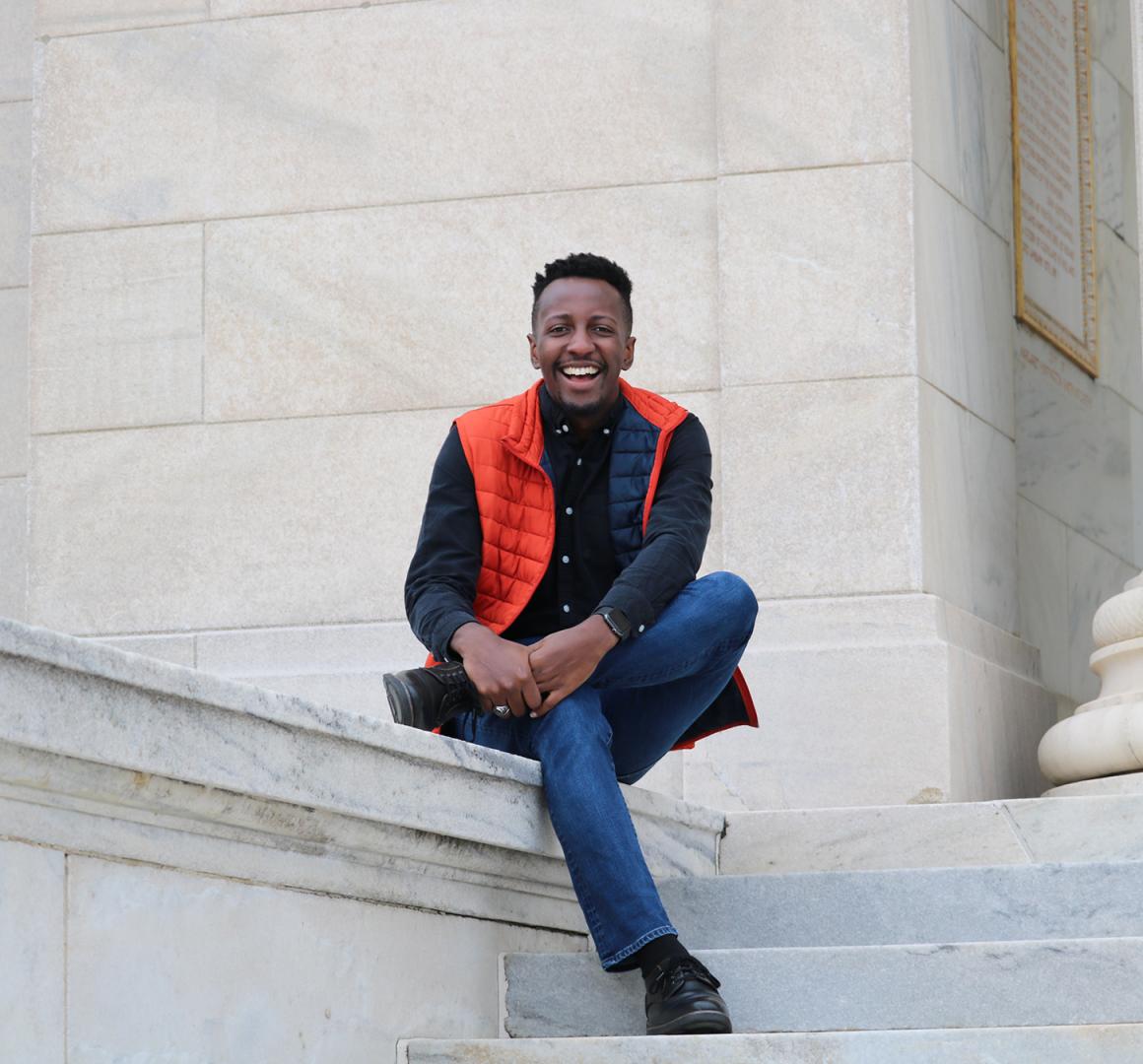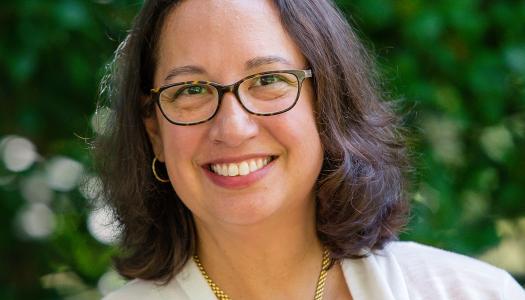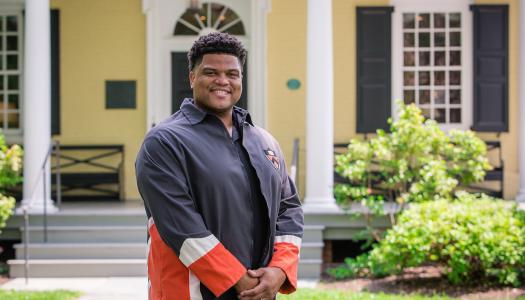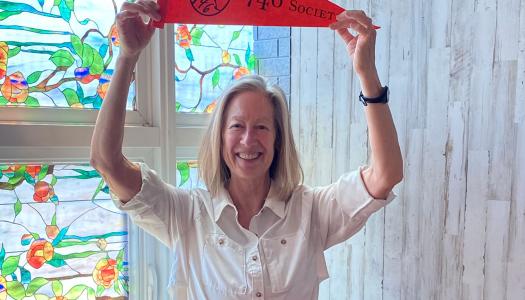Brandon McGhee ’18 fosters inclusion at every turn
The first-gen student credits the Freshman Scholars Institute (FSI) for giving him the foundation and confidence he needed to be successful at Princeton.

When Brandon McGhee ’18 was in high school, Princeton wasn’t on his radar; that is, until he met a very enthusiastic group of University alumni. The Ohio native co-founded Cultural Awareness, Race, and Equality (C.A.R.E.), a local organization focused on bringing awareness to issues around race, culture and diversity, and he was invited to a ceremony in Cleveland to accept the Princeton Prize in Race Relations.
“At the ceremony, I met all of these incredible Princeton alumni from 20, 30, 40 years ago, and they had so much pride for their school, and they were still wearing black and orange,” McGhee said. “I said, ‘You know what? I should probably give this institution a little investigation.’”
Good thing he did. The high-achieving McGhee applied, was accepted and spent the next four years as a politics concentrator earning a certificate in African American studies and getting involved in many student organizations that allowed him to pursue his passions and take on leadership roles. A first-generation, lower-income student, he credits the Freshman Scholars Institute (FSI) for giving him the foundation and confidence he needed to be successful at Princeton, both as a student and now as an alumni volunteer.
“I attended the Freshman Scholars Institute the summer before my freshman year,” McGhee said. “I found so much value in being a part of that community. As I was navigating school, it was important for me to know there are people who can relate to issues that I might face.”
McGhee carried that confidence throughout his time at Princeton, serving in student government each year, including as president of his senior and junior class, as a residential college advisor (RCA) in Forbes and as manager of the Old NasSoul, the all-male, R&B a capella group. He was also active in the Black Men’s Association and the Black Student Union, in addition to joining other religious organizations.
“As a Black male, it was definitely important for me to be able to find people from similar backgrounds as mine to establish a supportive network as we navigated Princeton.”
As president of the senior class, McGhee was introduced to the alumni body, serving as an ex-officio member of the Alumni Council. The experience gave him a first-hand look at governance and alumni volunteerism, helping him inform his work with his own class and introducing him to life after commencement.
“When I think back about my job as class president, which included fostering class unity and a class identity with a lens of diversity, equity and inclusion, and later as an alumni volunteer, I had to ensure that the class had an identity that everybody can feel a part of,” he said. “I want every single person to think, ‘I relate to that.’”
After graduating, McGhee went on to work as an account manager for Google where he had interned while at Princeton. He also served as a Princeton ambassador at Google, helping to recruit students and mentor others. With more than 400 Princetonians at Google, there was a large Princeton network. He left Google in the summer of 2021 to pursue a master’s in public policy at the Harvard Kennedy School and follow his passion for public policy. He hopes he can eventually make an impact in developing policies that benefit low-income communities. “If policies are considering the most marginalized, I think we can be in a place where we are able to finally break some of the systemic and cyclical nature of inequality in this country.”
McGhee’s Princeton experience inspired Rich Holland ’96, then-president of the Alumni Association, to invite McGhee to co-chair the first Ad Hoc Committee on Recent Alumni in 2019, with the charge of helping to foster relationships and build bridges with a segment of the alumni body that was often difficult to reach.
Among his committee’s early initiatives was looking carefully at the alumni offerings both in the region and online to determine if they resonated with the group’s demographics.
“How do we ensure that there’s not a one-size-fits-all approach for engagement, considering that every year we hear, ‘This is the most diverse class of Princeton’s history,’” McGhee said.
The transient nature of recent alumni, as they start and prioritize their careers, can also make it difficult for classmates, friends and the University to stay in touch. McGhee surveyed recent alumni to understand some of the reasons why they might not be involved and held focus groups with alumni leaders to understand some of the challenges they’ve experienced engaging with recent alumni.
Some of the conclusions included considering when events are scheduled — is 5 p.m. or noon a realistic time for a recent alum to attend an event? — and how they are promoted. For example, recent alumni respond more readily to text messages than to traditional email communications.
In thinking about how to encourage better engagement with recent alumni, McGhee advocates the “try it; you might like it” approach. He emphasized the message that volunteering for Princeton doesn’t have to mean committing many hours of your time, a luxury most recent alumni don’t have at this time of their lives. Interviewing prospective students as part of the Alumni Schools Committee is a great entryway to get involved because interviews can be short and fun, he said. “Who doesn’t have 30 minutes to give back?” he added. “Every time I speak to a prospective student, I fall in love again with Princeton.”
McGhee believes recent alumni are ideally positioned to provide an essential service to the University and the next generation of Tigers. “Giving back to Princeton sometimes means helping people who may be navigating Princeton with similar identities to the one that you hold or mentoring or supporting a colleague at work.”


